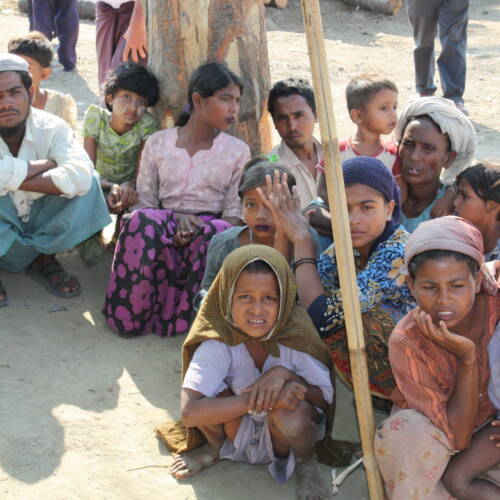
Crisis Group Calls for Reforms to End Rohingya Genocide
02 Sep 2020The International Crisis Group (ICG) has called on government and community leaders to engage in dialogue and “deep reform” to resolve tensions in Myanmar and end the violence that has been perpetrated against the country’s Rohingya Muslim minority. Among the issues the Brussels-based organisation called on to be resolved was the issue of citizenship, which has largely failed to include the country’s Rohingya population.
“Ethnicity and conflict are inextricably linked in Myanmar”
The ICG report published last Friday identified several divisive issues in Myanmar that have resulted in persistent tensions and conflict. The report warned that ethnicity has become central to citizenship, basic rights, politics and armed conflict in the country. It warned that from the colonial times to the 2014 census, the government categorised and enumerated the peoples of a very diverse country, resulting in an “unworkably convoluted and ultimately meaningless classification system.”
The centred nature of ethnicity, ICG argues, has created a toxic state of affairs where ethnic communities are in a literal arms race, further worsened by “the state’s inability to address ethnic minority grievances or provide adequate security to communities has created a literal arms race among minority groups.”
Through it all, it warned that the country’s leaders perpetuated notions of ethnic identity divide.
Addressing minority grievances is the root of the solution
The ICG report recommended that Myanmar should initiate reforms in “citizenship, the country’s administrative structure and the peace process with the aim of making ethnicity less central to the political and legal domains.”
The ICG called on Myanmar’s government to do more to address minority grievances and to build a more inclusive national identity, warning that they had not done this so far.
It also warned that non-Rohingya minorities are also suffering with many other minority groups in the conflict-wrought Rakhine state finding themselves “caught between two warring groups, neither of which they can rely on for protection.”
The ICG acknowledged that “charting a more tolerant and inclusive future for the country” would not be easy and said that one of the first steps would be for the communities in the country to be “free to celebrate their ethnic heritage, culture and identity.”
It also called for ethnicity to be delinked from territory and politics. A peace process, the ICG said, should not cement existing arbitrary ethnic categories.
It is estimated that some 750,000 Rohingya Muslims were displaced since 2017 and nearly 24,000 killed.






